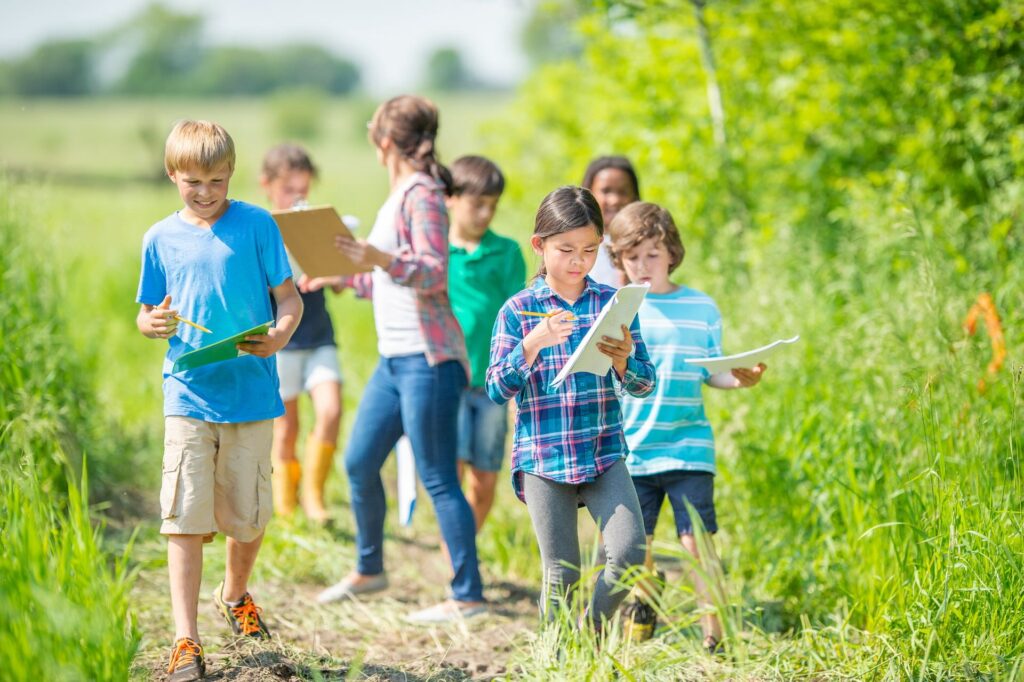What is summer learning? Simply put, summer learning is a combination of educational activities and programs that take place during the summer months. These activities and programs help students retain knowledge, develop new skills, and prevent the “summer slide,” which is the loss of academic knowledge and skills over the summer months. This learning loss occurs when students take a long break from academic activities, leading to declines in subjects like reading and math.
Summer learning can take many forms, including structured programs, independent study, educational camps, and online courses. These opportunities provide students with academic reinforcement and enrichment, ensuring they return to school prepared for the new academic year.
- Why is summer learning important?
- Common causes of summer learning loss.
- How to prevent the summer slide.
- Types of summer learning programs.
- How to make summer learning fun and engaging.
- Long-term benefits of learning during the summer.
- What is the right summer program?
Why is Summer Learning Important?
The summer months are an important time for students to help and reinforce the academic skills they gained during the school year. Without consistent academic engagement, many students experience a decline in their skills, making the transition back to school more difficult. Learning during the summer helps bridge this gap by keeping students’ minds active and engaged.
Benefits of learning during the summer months include:
- Prevention of learning loss helps students retain information and stay sharp for the upcoming school year.
- Stronger academic performance prepares students for new concepts and reduces the need for review in the fall.
- Increased confidence, keeping students engaged and confident in their abilities, reducing back-to-school anxiety.
- Flexible learning allows students to explore subjects they enjoy at their own pace.
- Preparation for future success equips students with the skills they need for high school, college, and beyond.
Common Causes of Summer Learning Loss
Summer learning loss is also known as the summer slide. Many factors contribute to the summer slide, but the main reason is a lack of academic engagement during the summer break. When students are not actively practicing skills such as reading, writing, or math, they tend to forget information and struggle to regain it when school starts again.
Some of the common causes of the summer slide include:
- Lack of academic practice and lack of regular learning activities can cause students to lose up to 2.6 months of math and reading skills.
- Students spend up to 6 weeks or more re-learning old material in the fall semester to make up for summer learning loss.
- Students without educational resources such as books, learning programs, or enrichment activities may fall behind their peers.
- A structured school schedule provides consistent learning opportunities, which are often lost during summer.
- Without challenges and problem-solving exercises, cognitive skills can weaken over time.
How to Prevent the Summer Slide
Preventing the summer slide doesn’t require a painstaking school schedule, but it does involve keeping children engaged in meaningful, educational activities. With a mix of structured learning and fun experiences, students can continue to grow academically throughout the summer.
Here are some ways to prevent the summer slide:
- Read Regularly. Encourage daily reading to maintain literacy skills and comprehension abilities.
- Practice Math Skills. Use workbooks, online games, or real-world applications like budgeting or measuring ingredients.
- Enroll in a Summer Program. Summer tutoring, educational camps, and online courses help keep students engaged.
- Encourage Writing Activities. Journaling, creative writing, or sending letters to friends and family can reinforce writing skills.
- Incorporate Educational Games. Board games, puzzles, and learning apps make learning fun and interactive.
- Explore Hands-On Learning. Activities like cooking, gardening, or science experiments provide practical learning experiences.
- Maintain a Learning Routine. Setting aside a little time each day for academic activities helps build consistency.
Learn more about how to prevent the summer slide.
Types of Summer Programs

Summer learning comes in many different formats, each catering to specific needs, interests, and academic goals. Choosing the right program depends on a student’s learning style and areas of interest.
Here are some of the most common types of summer learning programs:
- Summer tutoring programs offer one-on-one or small-group support to reinforce academic skills.
- Camps with educational components incorporate STEM, arts, or language learning into fun activities.
- Library and Reading Programs feature summer reading challenges and literacy activities at local libraries.
- College Prep and SAT/ACT Prep courses help high school students prepare for college applications, SATs, or ACTs.
- STEM and Coding Camps offer hands-on experiences in coding, robotics, and other technical skills.
- Project-based learning programs engage students in creative projects that develop real-world problem-solving skills.
Making Summer Learning Fun and Engaging
Learning over the summer doesn’t have to feel like a chore. Students can stay engaged by incorporating fun, interactive, and hands-on activities while still enjoying their break.
One way to make learning during the summertime enjoyable is to turn it into an adventure. Visiting museums, historical sites, and science centers can provide immersive learning experiences that bring subjects to life. Another approach is to gamify education by using apps, quizzes, and games that encourage problem-solving and critical thinking. These interactive tools make learning more dynamic and enjoyable.
Encouraging creative projects is another great way to keep students engaged. Activities like art, music, and DIY projects allow them to explore new skills while having fun. Taking learning outdoors can also enhance the experience. Nature walks, gardening, and outdoor science experiments provide hands-on opportunities to explore and discover.
Finally, setting learning goals with rewards can help motivate students to stay on track. Reaching goals creates a sense of achievement and encourages consistency, making learning both productive and enjoyable.
Learn more about GradePower Learning’s summer programs.
Summer Learning—The Long-Term Benefits

Engaging in summer learning doesn’t just prevent the learning slide—it provides long-term benefits that help students develop essential academic and life skills. By incorporating structured educational activities into summer break, students return to school with improved confidence, stronger skills, and a readiness to succeed.
Long-term benefits include:
- Better Academic Performance. Students who engage in summer learning perform better in the new school year.
- Increased Retention of Knowledge. Less time is spent reviewing old material, allowing for a stronger start to the school year.
- Improved Critical Thinking and Problem-Solving Skills. Learning during the summer promotes independent thinking and creativity.
- Development of Lifelong Learning Habits. Summer learning encourages curiosity, self-motivation, and continuous personal growth.
By prioritizing learning this summer, parents and students can turn the break into a time of enrichment, exploration, and skill-building, setting the foundation for future success.
Finding the Right Summer Program
With so many options available, selecting the right summer program for a child can feel overwhelming. Before making a decision, it’s essential to consider individual learning needs, interests, and goals.
Start by thinking about your child’s interests. Choosing a program that aligns with subjects or activities they enjoy will keep them engaged and motivated. Academic needs are another key factor—identifying areas where reinforcement is needed, such as math, reading, or science, can help narrow down the best options.
Flexibility is important when planning. A program that fits your family’s schedule ensures a stress-free experience. Finally, researching programs, reading reviews, and asking for recommendations from teachers or other parents can help you make an informed choice.
At GradePower Learning, we offer personalized programs throughout the year designed to keep students learning, engaged, and ready for the next school year.
Find a GradePower Learning location near you and discover how we can make summer both effective and enjoyable!







